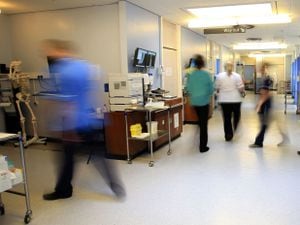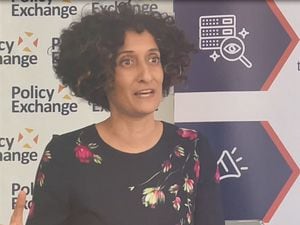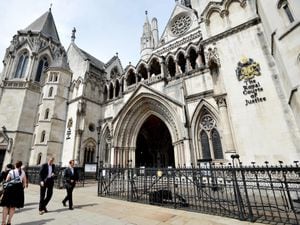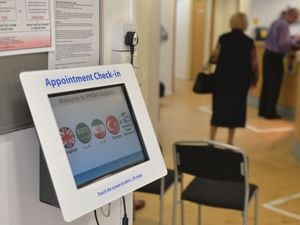Some medical blunders should ‘not be classed as never events’ – watchdog
The NHS safety watchdog said that some events should not be classed as ‘wholly preventable’.

Medical blunders such as a wrong hip replacement and a nine-year-old who received a drug by injection instead of by mouth should no longer be considered “never events”, a safety watchdog has said.
Never events are serious patient safety incidents that are supposed to be “wholly preventable” if healthcare providers have followed national guidance or safety recommendations.
Hundreds of these incidents occur in the NHS in England each year.
But now the Healthcare Safety Investigation Branch (HSIB) has recommended that a number of these incidents should be removed from the list.
It said that seven never events out of 15 on the list should be removed until there are better barriers in place to reduce the risk of harm to patients.
HSIB said that changing the definition of the incidents “doesn’t diminish their importance” but said that there is a “discord” between “saying an event should ‘never’ happen and not having effective barriers in place to prevent it happening”.
The organisation examined a number of never events which occurred in the NHS in 2018/19.
These included:
– A 9-year-old child who was wrongly given an oral drug intravenously prior to a kidney biopsy
– A 30-year-old woman who had a vaginal swab left inside her following the birth of her first child
– A 62-year-old man who had the wrong hip prostheses implanted during joint replacement surgery
– A 26-year-old man who had a nasogastric tube accidentally inserted into his lung following treatment after a bike accident
– A patient who received treatment intended for another person after two patients with similar names attended an outpatient clinic at the same time and the wrong one stood up when a name was called
HSIB said that the analysis of these incidents found that the supposed barriers to prevent these events were “neither strong nor systemic”.
It has recommended that the NHS should review and revise the list, and work to create “systemic barriers for specific incidents where barriers are felt to be possible but are not currently available”.
Dr Sean Weaver, deputy medical director at HSIB, said: “Our findings challenge the definition of these incidents as never events.
“This doesn’t diminish their importance; they still need to be recorded and learnt from but we recognised that there is a discord between saying an event should ‘never’ happen and not having effective barriers in place to prevent it happening.
“This continues to have an impact on the safe care of patients, affects the well-being of staff and reinforces the perception of a blame culture.”
“The number of themes we identified demonstrates the challenge for the NHS, not only in trying to ensure that never events don’t happen, but also in identifying suitable barriers.
“However, in the report we have also emphasised what this may look like. The other eight never events on the list of 15 happen much less often and this therefore implies stronger barriers, for example restrictions to prevent falls from hospital windows and limiting access to high-strength medicines.
In 2018/19 there were 496 never events in the NHS in England.
Commenting Rachel Power, chief executive of the Patients Association, said: “If we are to scrap half the list of never events because there are not standardised safe systems of care that keep patients safe, we need a meaningful debate about the purpose of officially designated never events and the levels of safety patients can expect within the NHS.
“Patients must be involved in any review to contribute their expectations of safe care and the value of designated never events for improving patient safety.
“HSIB have set out their reasoning for their proposals but if the never events approach to protecting patients from harmful errors is to be changed, we need to know what’s going to be done instead.”
A spokesman for the NHS in England said: “These incidents are extremely rare and our own review of never events, which is already under way, will consider HSIB’s findings as we continue to prioritise patient safety above all else and try to prevent this type of incident.”
– The never events which should be removed from the list include: wrong site surgery; retained foreign objects post-procedure; wrong implant/prosthesis; unintentional connection of a patient requiring oxygen to an air flowmeter; misplaced naso- or orogastric tubes; overdose of insulin due to abbreviations or incorrect device and administration of medication by wrong route.





